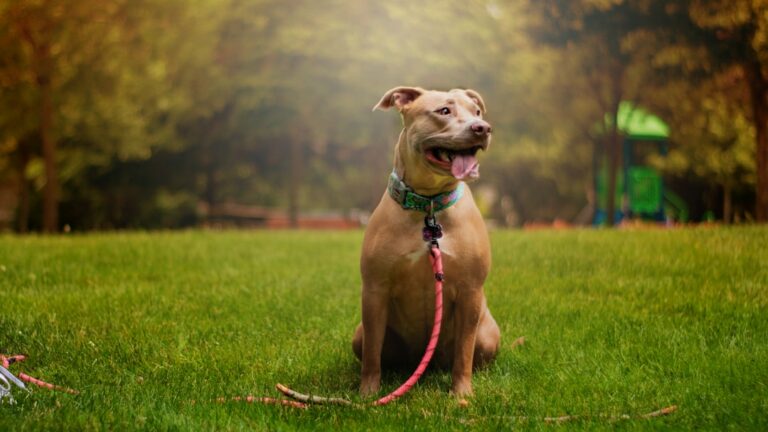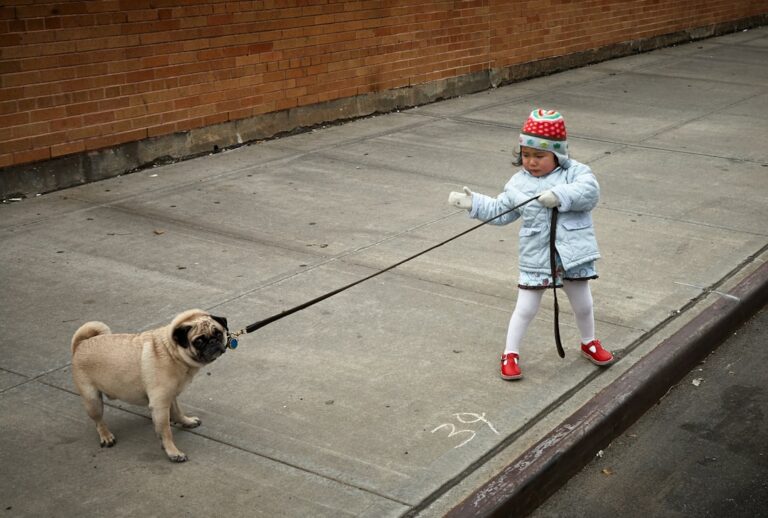The Puppy Training Guide: Setting Your Furry Friend Up for Success
The Benefits of Early Training for Puppies: Learn why early training is crucial for puppies to develop good behavior habits, social skills, and prevent common behavior issues in adulthood.
Introduction to Early Puppy Training
Early training is crucial for puppies to develop good behavior habits and social skills. It sets the stage for a lifetime of positive interactions, benefiting both the puppy and the owner. By commencing training from a young age, many common behavior issues in adult dogs can be mitigated, thus creating a harmonious relationship between pets and their owners.
Puppies benefit significantly from starting training at a young age, as it instills good habits early on, making it easier for them to adapt to various situations as they grow. For instance, teaching a puppy basic commands such as sit, stay, and come during early training not only enhances their obedience but also establishes effective communication between the puppy and its owner. Additionally, early training paves the way for puppies to learn impulse control, a vital skill that contributes to their overall well-being and responsiveness.
Proper training from a young age can prevent many common behavior issues in adult dogs, such as aggression and destructive tendencies. This preventive approach not only ensures a well-behaved pet but also fosters a deep bond between the puppy and its owner. By investing time and effort into early training, owners can proactively address behavioral concerns, resulting in a well-mannered and adaptable dog in the future.
Benefits of Early Puppy Training
Training puppies at a young age leads to better behavioral outcomes, including reduced aggression and destructive tendencies. Early training helps puppies learn impulse control, which is essential for their overall obedience and well-being. Socialization during early training aids in preventing fear and anxiety in puppies as they grow.
Starting training early not only sets a positive trajectory for a puppy’s behavior but also establishes a strong foundation for a lasting bond between the puppy and its owner. For example, by introducing basic commands like sit, stay, and come during early training, owners can effectively communicate with their puppies, fostering a sense of understanding and cooperation. Additionally, leash training from a young age is crucial in helping puppies develop good walking habits and reducing undesirable behaviors like excessive pulling, making daily walks more enjoyable for both the puppy and the owner.
Moreover, early training is instrumental in creating a well-rounded and adaptable dog in the future. By addressing behavioral issues proactively through training, owners can prevent the development of unwanted habits and ensure that their puppy grows into a well-mannered and socially adept companion. This proactive approach not only benefits the individual puppy but also contributes to a harmonious relationship within the household, enhancing the overall quality of life for both the puppy and its owner.
Importance of Starting Training Early
Starting training at 8 weeks old is a significant advancement in puppy training practices, debunking previous misconceptions that training should start at a later age. By introducing puppies to training at such a young age, owners can capitalize on the puppy’s receptive brain and high energy levels for more effective training sessions. Additionally, the early introduction of training helps prevent potential behavior problems in the future, such as disobedience and aggression, setting a solid foundation for a well-behaved companion.
For example, beginning training early allows puppies to learn crucial skills like bite inhibition and socialization, which are fundamental for their development and future interactions with other dogs and people. Moreover, early training sessions enable owners to establish themselves as leaders, creating a harmonious relationship based on trust and respect. This proactive approach to training not only benefits the puppy’s behavior but also enhances the overall quality of life for both the puppy and its owner.
Key Stages of Puppy Training
When it comes to the key stages of puppy training, focusing on fundamental behaviors is crucial for setting a strong foundation for your furry friend. Teaching basic cues like sit, stay, and come not only establishes effective communication between you and your puppy but also lays the groundwork for more advanced training sessions. For instance, by consistently practicing these basic commands, you can ensure that your puppy learns to respond promptly and accurately to your instructions, fostering a sense of trust and obedience.
Furthermore, leash training is an essential component of early puppy training that should not be overlooked. Starting leash training from a young age helps puppies develop good walking manners and prevents common issues like pulling on the leash during walks. For example, introducing your puppy to the leash early on and teaching them to walk beside you calmly can make outdoor activities more enjoyable and stress-free for both you and your pet. This stage of training also promotes safety by ensuring that your puppy stays close to you and obeys commands even when distractions are present.
Moving on to advanced commands such as heel and leave it, these skills are valuable for enhancing your puppy’s responsiveness and overall obedience. By introducing advanced commands during early training sessions, you are challenging your puppy to think and act in more complex ways, which can boost their cognitive abilities and problem-solving skills. For instance, teaching your puppy to heel not only encourages them to walk politely by your side but also reinforces the bond between you as they learn to trust and follow your lead. Similarly, commands like leave it can help prevent your puppy from picking up potentially harmful items or engaging in unwanted behaviors, promoting a safe and harmonious environment for both of you.
Positive Reinforcement Techniques
Positive reinforcement techniques play a crucial role in shaping a puppy’s behavior and fostering a strong bond between the owner and the pet. By using rewards like treats and praise, owners can motivate puppies to exhibit desired behaviors such as sitting, staying, and coming when called. For instance, when a puppy successfully follows a command to sit, rewarding them with a treat reinforces the action positively, making them more likely to repeat it in the future.
Consistency is key when implementing positive reinforcement methods. By consistently rewarding good behavior and ignoring or redirecting unwanted actions, puppies can quickly learn what is expected of them. For example, if a puppy jumps on guests, redirecting their attention to sitting and rewarding them for this calm behavior will help them understand that sitting politely is more rewarding than jumping. This approach not only helps in training specific commands but also in shaping the overall behavior of the puppy.
Moreover, positive reinforcement training emphasizes the importance of ignoring undesirable behaviors rather than resorting to punishment. This method promotes a positive learning environment where puppies feel encouraged to try new behaviors without the fear of reprimand. By focusing on reinforcing positive actions, owners can build a trusting and respectful relationship with their puppies, leading to long-lasting obedience and a happy companionship.
Building a Lasting Bond Through Training
The bond created through early training is a vital aspect of the relationship between puppies and their owners. By engaging in training sessions from a young age, owners can foster mutual trust and understanding with their puppies, leading to a harmonious coexistence. For example, practicing basic obedience commands like sit, stay, and come not only helps puppies learn to communicate effectively but also reinforces the owner-puppy bond through shared activities and positive reinforcement.
Moreover, early training sessions provide an opportunity for owners to assume a leadership role in their puppy’s life. By setting boundaries, offering guidance, and consistently reinforcing desired behaviors, owners can establish themselves as reliable figures, which in turn builds respect and a sense of security in puppies. For instance, leash training from an early age not only teaches puppies to walk politely but also instills a sense of trust and reliance on the owner for guidance during walks, enhancing the bond between them.
Additionally, a well-trained puppy is more adaptable to different environments and social situations, making outings and interactions with other pets and people more enjoyable for both the puppy and the owner. This adaptability not only reflects positively on the owner’s training efforts but also contributes to a fulfilling and enriched life for the puppy, who can confidently navigate various scenarios with ease. Investing time and effort in early training not only shapes a puppy’s behavior but also cements a lasting bond that forms the foundation for a strong and enduring relationship between the puppy and its owner.
Conclusion and Call to Action
Embarking on early training for your puppy is more than just teaching them basic commands; it sets the foundation for a well-behaved and adaptable companion for life. With the right guidance and training methods, puppies can learn essential skills and behaviors that will benefit them throughout their lives. For example, starting training at 8 weeks old allows puppies to develop good habits early on, such as proper leash behavior and socialization with other dogs and people.
Off Leash K9 Training of Milwaukee offers personalized training programs that cater to your puppy’s specific needs, ensuring a tailored approach to their development. By enrolling in their programs, you can proactively address potential behavior issues and set your puppy up for success in various social settings. Taking the step to invest in your puppy’s training not only benefits their behavior but also strengthens the bond between you and your furry friend. Through consistent and positive training techniques, you can nurture a relationship built on trust, communication, and mutual understanding.
To kickstart this rewarding journey of training and bonding with your puppy, reach out to Off Leash K9 Training of Milwaukee today. Contact them at (414) 485-0202 or visit their website to explore the range of training options available and take the first step towards a harmonious and fulfilling companionship with your beloved pet.










